England’s Women’s Euro final run must leave a lasting legacy
The Lionesses are ‘ready to write history’ – but will the impact be for the long term?
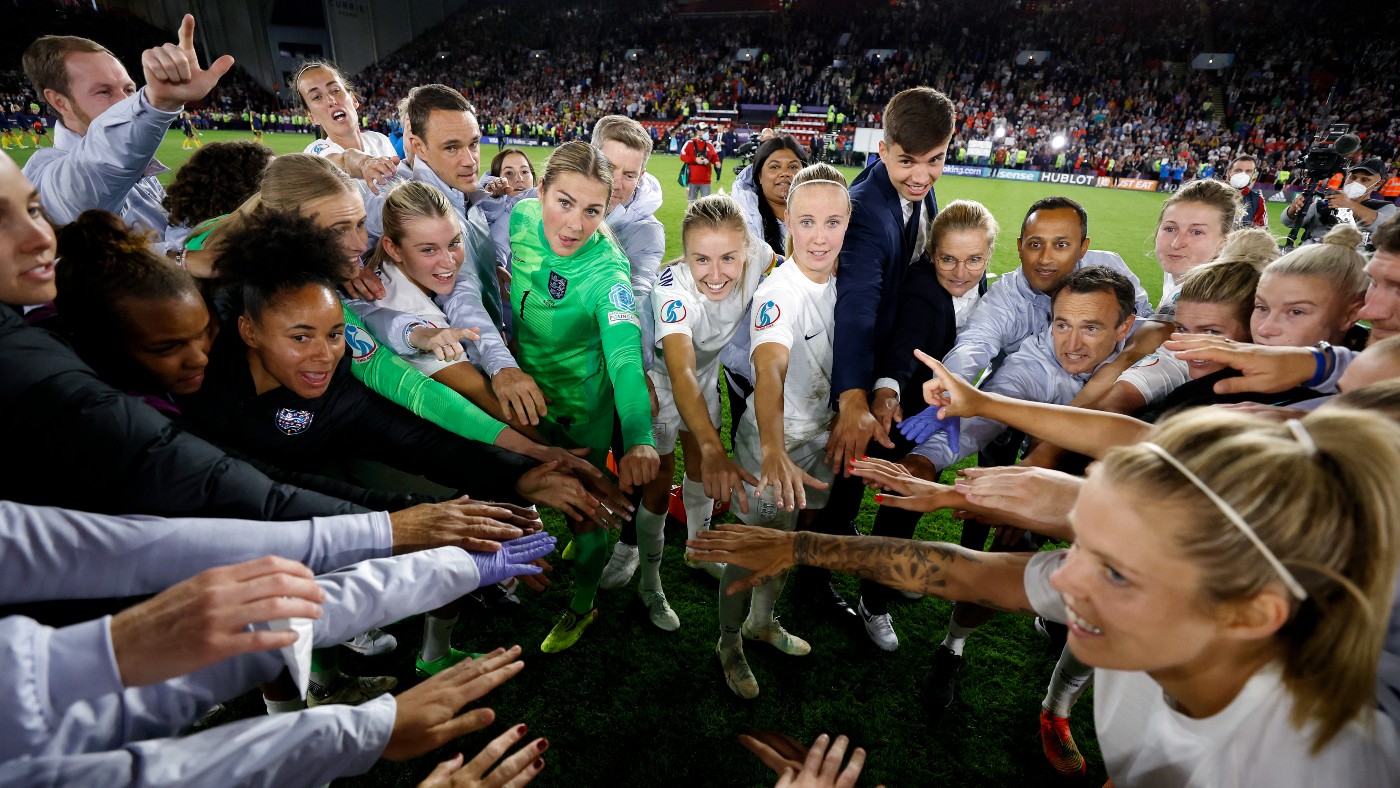
A free daily email with the biggest news stories of the day – and the best features from TheWeek.com
You are now subscribed
Your newsletter sign-up was successful
Sarina Wiegman’s England squad are “ready to write history” after they thrashed Sweden 4-0 to reach the final of the Uefa Women’s Euro 2022. At Bramall Lane in Sheffield the Lionesses turned on the style as they powered past the world’s second-highest ranked team with goals from Beth Mead, Lucy Bronze, Alessia Russo and Fran Kirby.
The victory over Sweden ended England’s semi-final hoodoo after losses at the 2017 Women’s Euros and the 2019 and 2015 World Cups. They will now play Germany in Sunday’s showpiece at Wembley Stadium in London (5pm kick-off, live on BBC One).
Sunday will represent England’s third appearance in the competition’s final, said Sky Sports. At the inaugural Women’s Euros in 1984 they were beaten on penalties by Sweden after the two-legged final ended 1-1 on aggregate. Then in 2009 they lost 6-2 to Germany.
The Week
Escape your echo chamber. Get the facts behind the news, plus analysis from multiple perspectives.

Sign up for The Week's Free Newsletters
From our morning news briefing to a weekly Good News Newsletter, get the best of The Week delivered directly to your inbox.
From our morning news briefing to a weekly Good News Newsletter, get the best of The Week delivered directly to your inbox.
Should England triumph at Wembley it would also see Wiegman win the tournament for the second time in succession. She led her native Netherlands to victory in 2017.
Legacy programme goals
Before and throughout the tournament Wiegman has spoken about how the Lionesses had aimed to “inspire the nation” at their home Euros. When asked in the post-match press conference if the win over Sweden was a statement to their rivals, she said: “Yes, I think so. We said we’re ready to write history and this is it.”
When England won the bid to host this year’s tournament, the Football Association (FA) said it hoped that the major event would “inspire positive change” and develop the women’s and girls’ game in Sheffield, Rotherham, Manchester, Trafford, Wigan and Leigh, Milton Keynes, London, Southampton and Brighton & Hove.
As part of the FA and Uefa’s Women’s Euro 2022 legacy programme, the three main goals were to “give access for all girls to play football in school and clubs”; create a diverse workforce of coaches, referees and local leaders “delivering and organising football for their communities”; and provide inclusive, safe and welcoming environments for “every woman and girl to play competitive or recreational grassroots football, irrespective of ability, disability, age or ambition”.
A free daily email with the biggest news stories of the day – and the best features from TheWeek.com
Head coach Wiegman believes that the team’s performances are “making a difference” and that the “whole country is proud” of the progress. “Even more girls and boys will want to play football.”
End the ‘eyebrow-raising disparities’
Watching the semi-final from the gantry at Bramall Lane, BBC pundit Ian Wright said he felt “as proud as I’ve ever felt of any England side”. However, the former Arsenal and England striker did send a warning to the authorities who run the game. “Whatever happens in the final now, if girls are not allowed to play football in their PE, just like the boys can, what are we doing?” he said. “We have got to make sure they are able to play and get the opportunity to do so. If there’s no legacy to this – like with the Olympics – then what are we doing.”
This year’s European Championship has “caught the imagination of football fans and the wider public” and the women’s game is “undoubtedly, having a moment”, said Marie-Christine Bouchier, the Professional Footballers’ Association’s director of women’s football, writing in The Guardian. England’s performances have led the newspaper back pages and “even more of the players are becoming household names”.
The real legacy, however, “must be true parity” for female footballers in England, Bouchier added. In April the government endorsed ten key strategic recommendations set out in a fan-led review of football in England. Published in November 2021 by former sports minister Tracey Crouch, a number of “detailed recommendations” were made, including that women’s football “should be treated with parity and given its own dedicated review”.
“Now is the perfect time” to launch the promised review and “end eyebrow-raising disparities”, Bouchier said. “It’s an opportunity that we need to make sure we don’t miss.”
Mike Starling is the former digital features editor at The Week. He started his career in 2001 in Gloucestershire as a sports reporter and sub-editor and has held various roles as a writer and editor at news, travel and B2B publications. He has spoken at a number of sports business conferences and also worked as a consultant creating sports travel content for tourism boards. International experience includes spells living and working in Dubai, UAE; Brisbane, Australia; and Beirut, Lebanon.
-
 Why is the Trump administration talking about ‘Western civilization’?
Why is the Trump administration talking about ‘Western civilization’?Talking Points Rubio says Europe, US bonded by religion and ancestry
-
 Quentin Deranque: a student’s death energizes the French far right
Quentin Deranque: a student’s death energizes the French far rightIN THE SPOTLIGHT Reactions to the violent killing of an ultraconservative activist offer a glimpse at the culture wars roiling France ahead of next year’s elections.
-
 Secured vs. unsecured loans: how do they differ and which is better?
Secured vs. unsecured loans: how do they differ and which is better?the explainer They are distinguished by the level of risk and the inclusion of collateral
-
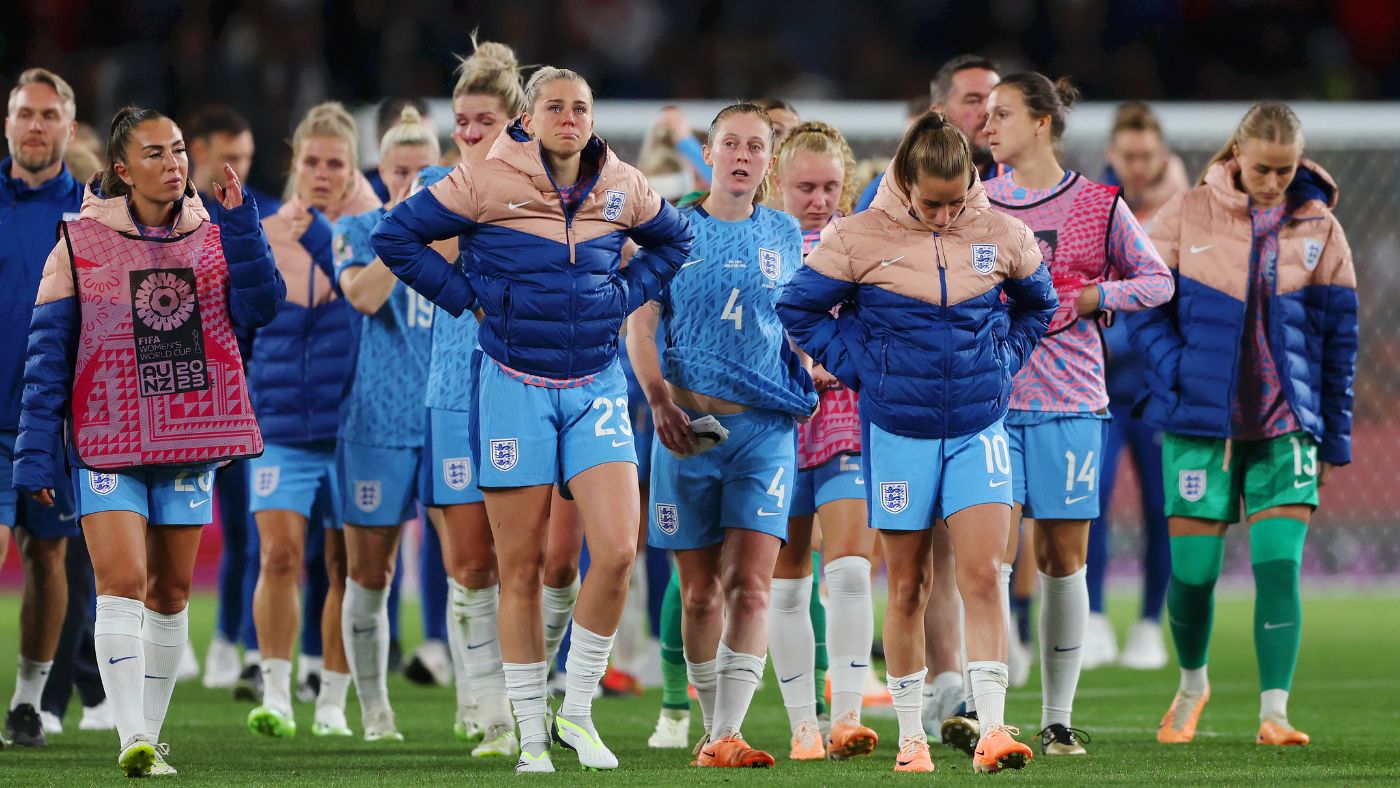 Lionesses will have regrets but their legacy can be ‘incredible’
Lionesses will have regrets but their legacy can be ‘incredible’feature England stars return home after heartbreaking Women’s World Cup final loss to Spain
-
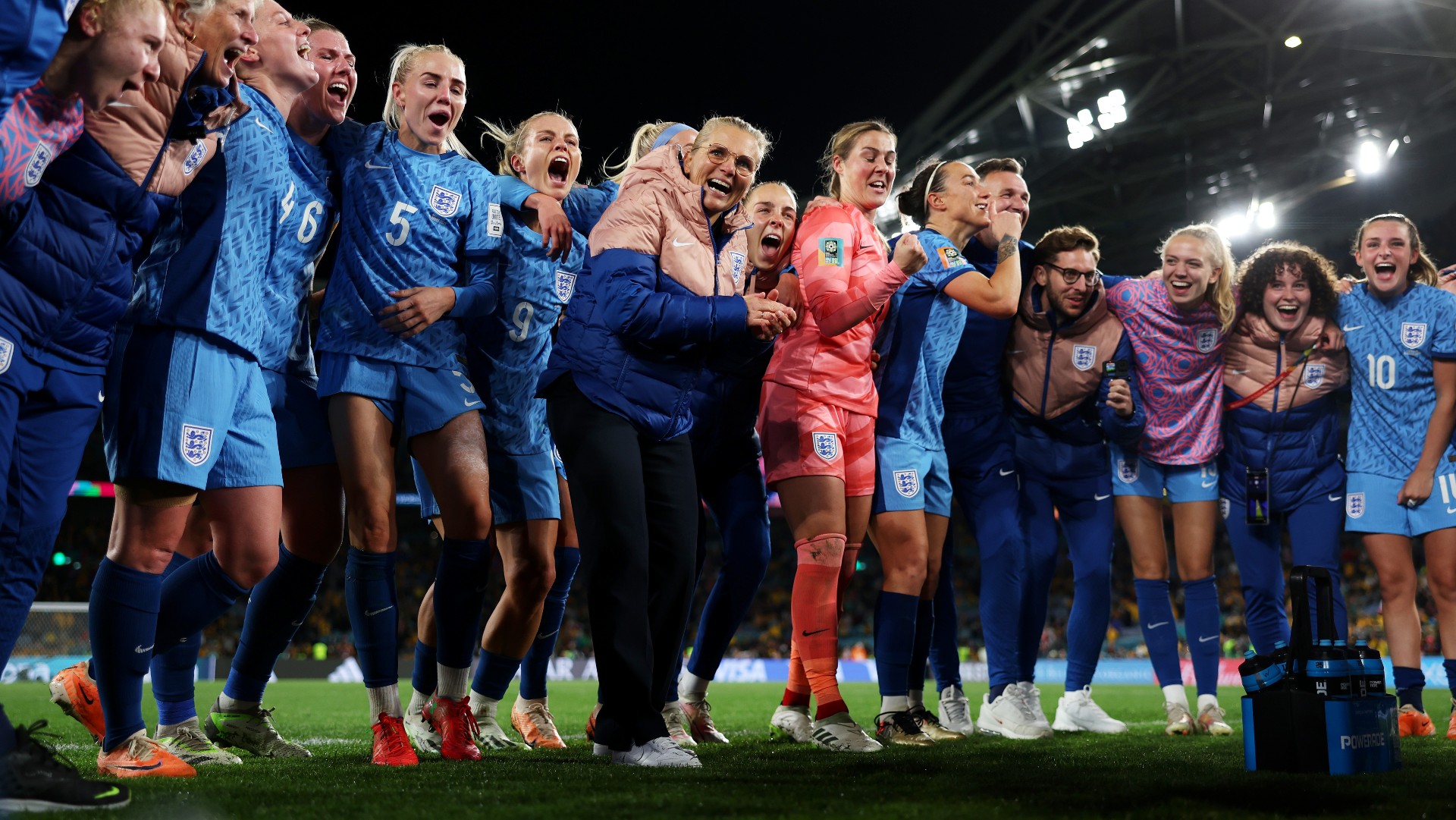 ‘Fairytale’ for Wiegman as Lionesses roar into first Women’s World Cup final
‘Fairytale’ for Wiegman as Lionesses roar into first Women’s World Cup finalfeature England will face Spain on Sunday after spoiling the Matildas’s party in Sydney
-
 2023-2024 Premier League predictions: champions, relegation and golden boot
2023-2024 Premier League predictions: champions, relegation and golden bootfeature A look at the top flight talking points and pundit picks for the new season
-
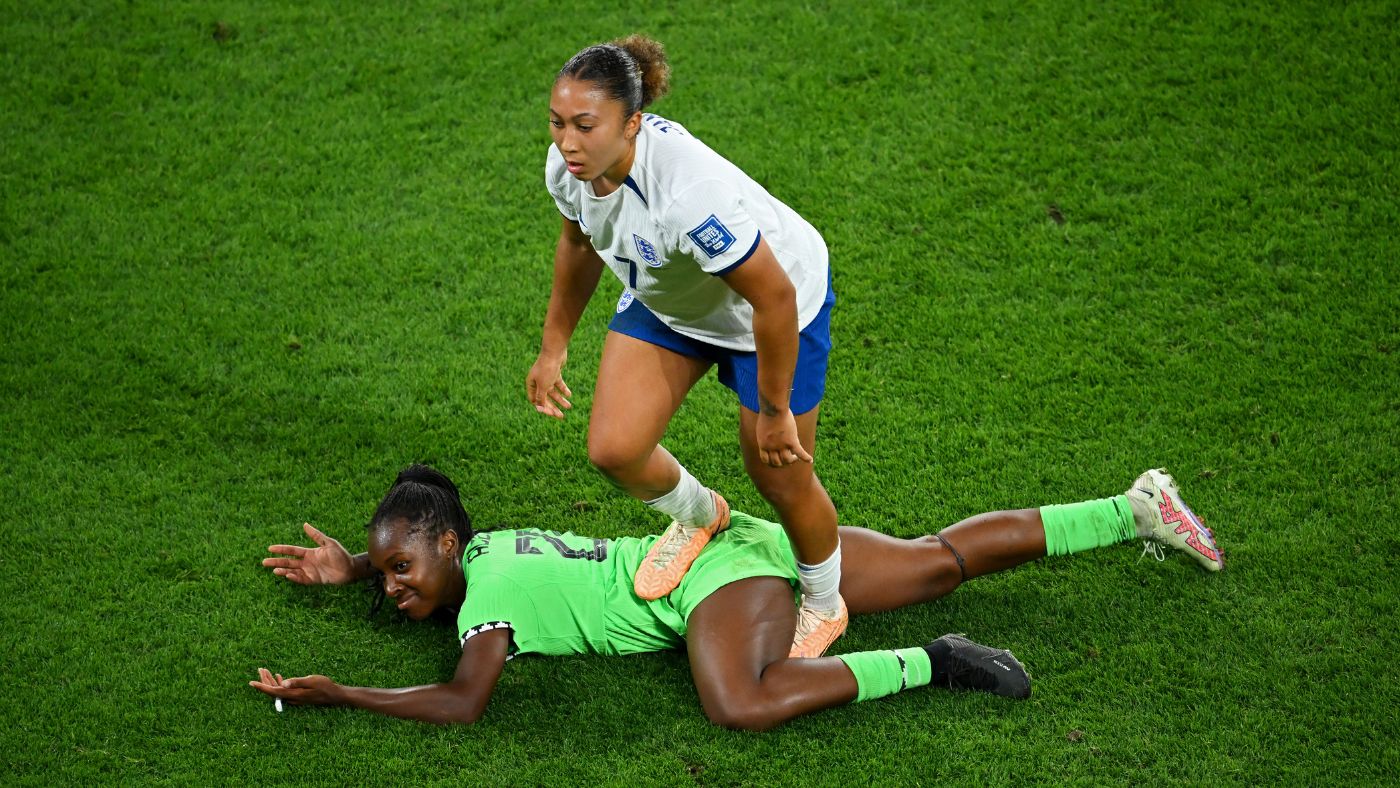 Lionesses dig deep after Lauren James’s ‘Beckham-esque’ red card
Lionesses dig deep after Lauren James’s ‘Beckham-esque’ red cardfeature England reach the Women’s World Cup quarter-finals after a 4-2 win on penalties against Nigeria
-
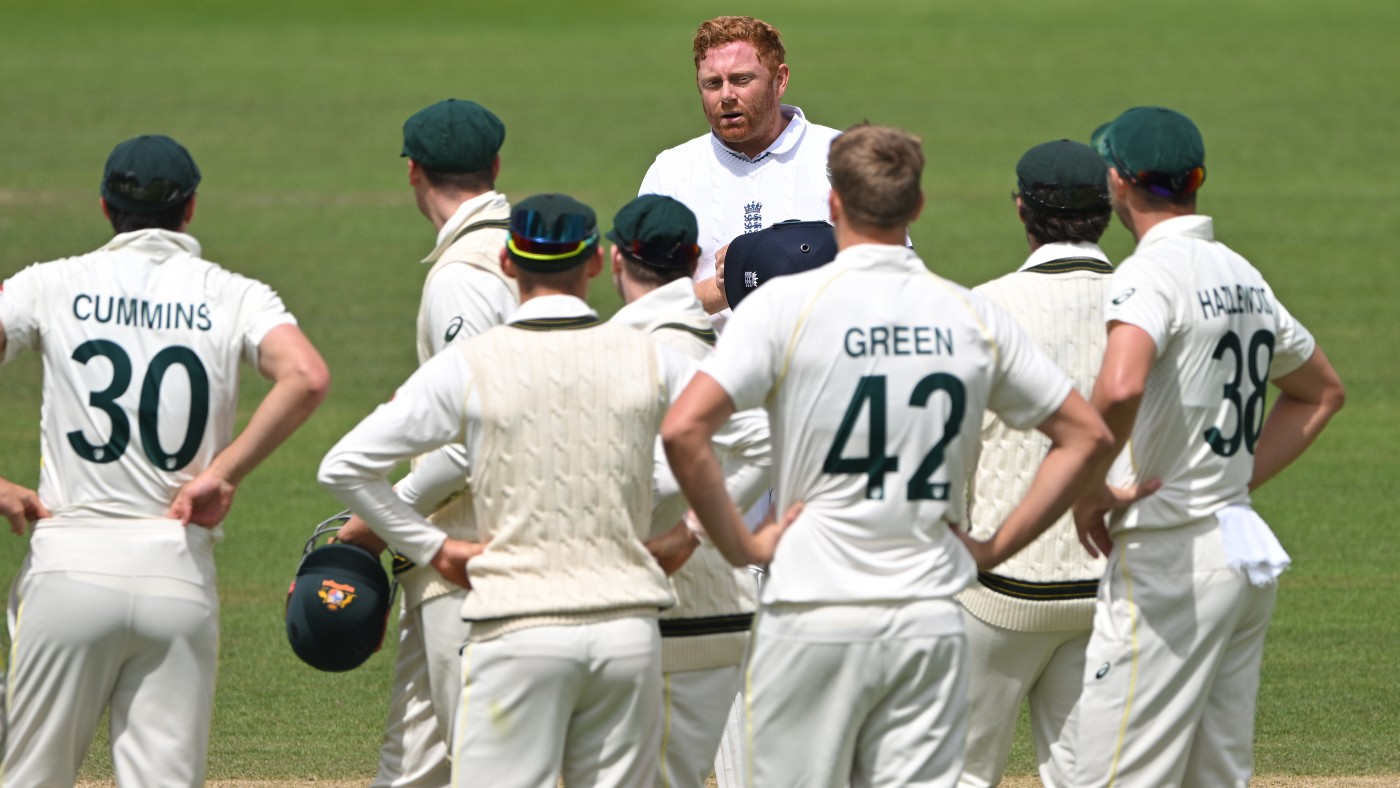 The Ashes: can England mount a glorious comeback?
The Ashes: can England mount a glorious comeback?feature ‘Herculean’ task follows ugly scenes at controversial second test
-
 Antonio Conte leaves Tottenham after ‘extraordinary’ rant at players
Antonio Conte leaves Tottenham after ‘extraordinary’ rant at playersfeature After another year without a trophy, Spurs are now searching for a new manager
-
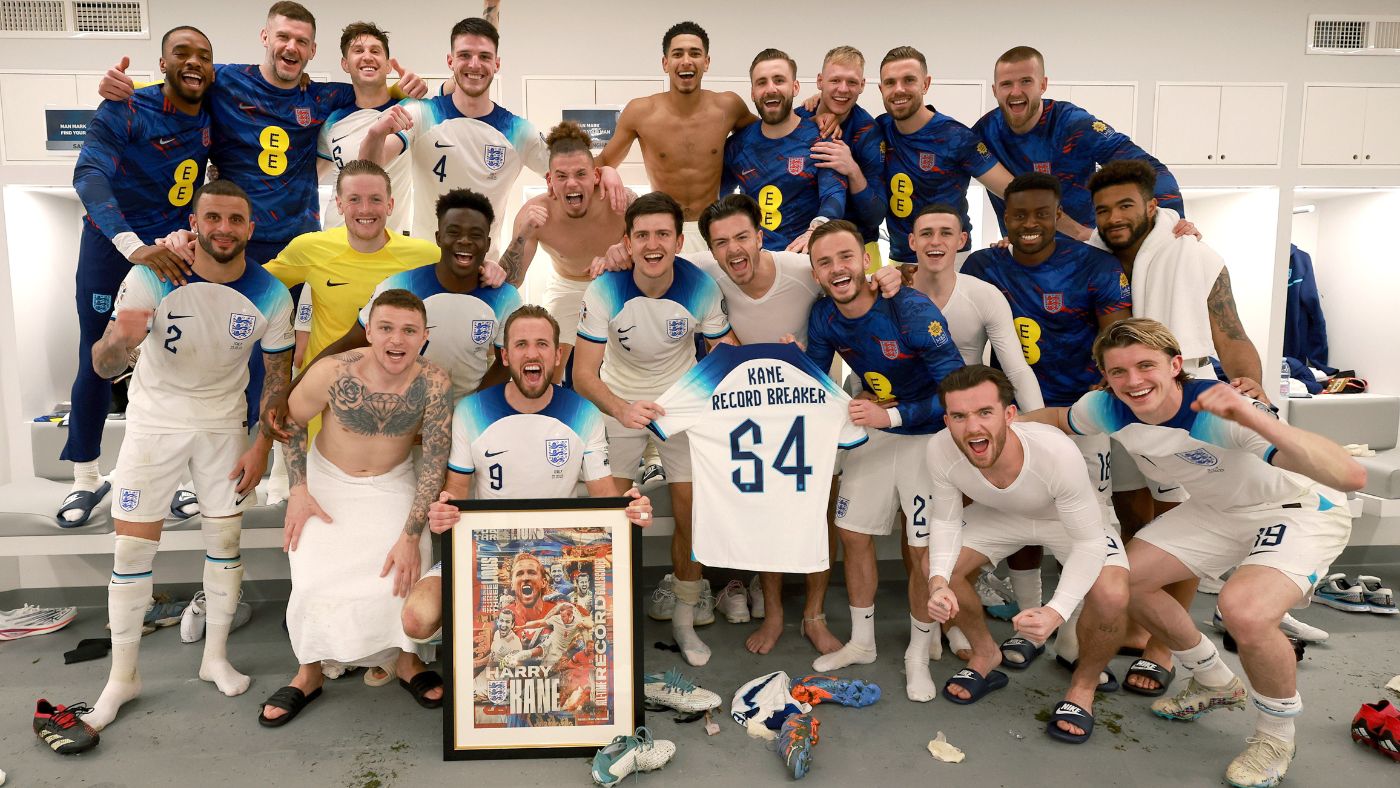 ‘Captain fantastic’: Harry Kane’s most memorable England goals
‘Captain fantastic’: Harry Kane’s most memorable England goalsfeature Kane has overtaken Wayne Rooney as the Three Lions’s all-time leading goalscorer
-
 Liverpool 7 Man Utd 0: ‘welcome to Jürgen Klopp’s Liverpool 2.0’
Liverpool 7 Man Utd 0: ‘welcome to Jürgen Klopp’s Liverpool 2.0’feature Anfield’s ‘new front three’ were on fire in the humbling of their bitter rivals